Volodymyr Zelensky
I am inspired by the Ukrainian people – a courageous, creative and strong people who united in one moment against the brutal and unjust Russian aggression. All Ukrainians today are warriors – those on the front line, volunteers, journalists, IT specialists, doctors, teachers, absolutely everyone. These are strong and courageous people who are fighting for their homeland, their country and their lives. And nothing can break them. Not bombs, not rocket strikes, not the lack of electricity, water and heat in their homes, nor other types of Russian terror. This nation delights and inspires me and gives me confidence in the victory of Ukraine.
Richard Dawkins
Science gives me hope. It’s almost too obvious, but it needs saying. Yes, the problems we face are dire, but science has form when it comes to solving problems. Anaesthetics solved the problem of unbearable pain, antibiotics solved the bacteria problem, vaccination stops most viruses in their tracks, scientific agriculture promises hope against starvation. Sadly, science may provide the remedy but the political will to implement it remains the bigger problem. It’s all very well pointing to the miracle of vaccines, but then there’s the political problem of the irrational anti-vaxxers. Science may know how to deal with the long-term menace of climate change, but that’s the easy part; how do we counter short-term greed? But let’s be optimistic. Our species has measured the distance between mirrors to an accuracy of less than the width of a proton, and so detected ripples in the very fabric of space-time. Homo sapiens has earned its Linnaean binomial by pinpoint navigation to a comet, by shifting the orbit of a distant asteroid, by deciphering the triplet code of DNA. If ever a species could beat the odds, it is Homo scientificus.
Elif Shafak
Hope is a work in progress. Some days it is easy, other days not so much. The truth is, we need to make peace with our anxieties, melancholies and even depression, because they are just as integral to the human condition as joy, love and laughter. So my understanding of hope is based on ‘creative pessimism’ and ‘conscious optimism’. The optimism usually comes from stories – particularly stories of kindness, empathy, courage and resilience. Perhaps hope, just like empathy, is more a verb than a noun. It requires daily practice.
The Dalai Lama
I often ask myself what the purpose of life is. I conclude it is to be happy. The ultimate source of happiness is a mental feeling of joy, not a wealth of material goods. To be happy, therefore, it is our minds we must transform. This is the basis of the Indian traditions of ahimsa (non-violence) – doing no harm – and karuna (compassion) – wishing others to be free from suffering. Compassion, an active concern for others’ wellbeing, is not only part of religion: from compassion, we develop self-confidence, which in turn brings inner strength. If a person is happier, his or her family is happier; if families are happy, neighbourhoods and nations will be happy. We must continually consider the oneness of humanity, remembering that we all want to be happy and everyone has a right to a happy life. Along the way we may be faced with problems, but we must not lose hope. Feeling depressed and losing hope will never correct any situation.
Michael Caine
I hoped we would survive the Blitz in the second world war. I wanted to grow up. Now my future is my family, whom I adore.
Matt Ridley
Africa. The poorest continent has experienced ten years of declining malaria, HIV, hunger, war, birth rates and elephant poaching, alongside a steadily increasing lifespan, rising living standards and rapidly improving education. Much of the continent is experiencing an economic miracle similar to that which Asia experienced a generation ago. Ten years ago a lot of people were ready to write Africa off as a lost cause. ‘It’s blindingly obvious,’ wrote the environmentalist Jonathon Porritt, that ‘completely unsustainable population growth in most of Africa will keep it permanently, hopelessly, stuck in deepest, darkest poverty.’ Yet its birth rate is falling at 1.25 per cent a year and the rate of fall is accelerating. There’s a long way to go and a lot of poverty left, but there is more hope than at any time in the past.
Nigel Farage
What gives me something to look forward to is the return of bluefin tuna to British waters in huge numbers. It proves that not all environmental stories mean that I have to chain myself to a gantry on the M25 and instead I can escape the world by chasing these amazing creatures.
Anthony Seldon
London, Edinburgh and countless other cities and towns give me hope, which I now see as if for the first time because I walk almost everywhere. Lockdown was the catalyst which broke my habit of catching buses and taxis to get around. London is so beautiful, and much cleaner and safer than I can remember at any other time in my life. Such joy to discover offbeat routes and passages, to look above the shop windows to see the original buildings, to be immersed in the sounds, sights and smells of urban life. I often imagine I am Charles Dickens, wandering around all night, gazing at doors and shutters and picturing the life behind them.
David Abulafia
As a historian, what gives me hope at a time when free speech is under threat and activists are trying to shut off debate in order to impose their views is the refusal of the wider public to give credence to so much of the pretentious and often self-contradictory nonsense that is spewed forth by university heads, HR departments, museum curators and media performers. I have no statistical proof that the majority think as I do, but I have faith in the rational outlook of most British people and in their aversion to extremism, acrimony and dogma. So far so good for this country; I wish I could say the same for very many others.
Peter Hitchens
These words about the passing of the material world, the earth and the heavens, from the Epistle for Christmas Day (now alas rarely read): ‘They shall perish, but thou remainest; and they all shall wax old as doth a garment, and as a vesture shalt thou fold them up, and they shall be changed; but thou art the same, and thy years shall not fail.’
Rishi Sunak
The answer – in a micro way, rather than a macro way – is people. The country displayed an enormous amount of resilience during a very difficult time during the pandemic. You had small businesses being told first to shut down and then to re-open – but only half the time, and even then only outdoors. Still, somehow, they made it work. Then there were families, adjusting to everything being thrown at them.
Then there’s the people around me – at the No. 10 front door, or the PM post team who are with me even when I’m up at midnight, doing my Christmas cards, or the people making sure my meetings work with whatever foreign dignitary. They’re driven by public service, to help me succeed. So no matter how big the challenge is, I’m pretty confident – because I’ve got all these amazing people behind me.
Mary Beard
I’m not usually a sentimental old granny, but right now I think it’s my three grandchildren (six months to three years) that give me hope. The world may be collapsing around us, but there they are, learning how to be people, learning how things work, learning about pleasure and sadness – and so optimistic for the future (not yet having discovered pessimism). Just watching them gives me hope, and a strange confidence in the future.
Yuval Noah Harari
Hope comes from deeds and connections, not from solitary thoughts. Hopelessness overtakes us when we are all alone, spinning hellish scenarios in our minds about which we cannot do anything. After all, how can we change something that doesn’t really exist? But when we focus on reality, we almost always discover that there is something we can actually do to improve the situation. Every person has some power, and exercising our agency gives hope. And every person also has a superpower – the ability to work with others. Fifty people working together can accomplish far more than 500 individuals, each trying to do their own thing. So if you feel hopeless, join an organisation.
Jonathan Haidt
The USA is in a polarisation spiral and there is no visible way out. Democracy has been declining around the world since the early 2010s, as social media has exacerbated democracy’s known weaknesses and strengthened its enemies. The arrival of Gen Z, with rising rates of anxiety and declining social skills, means we can’t look to the next generation to save us. I am not hopeful about the next 20 years, but reading Steven Pinker and Matt Ridley gives me hope for the long run: there are cycles in history, and temporary downturns, but if you zoom out far enough, humanity’s direction is clearly upward.
Antonia Fraser
With me, hope doesn’t always spring, but writing verses always makes me feel hopeful. (By the way, I distinguish verses, which everyone can and should write, from poems, which are written by poets.) I was in a state about my speech at my 90th birthday lunch in August until I suddenly thought: who needs a speech? I’ll write a verse. Immediately I felt better. It ended with the hope that everyone present would have ‘the luck of reaching 90 too. That would be quite a ball. Phew!’.
Horatio Clare
In crisis hope also rises. This year more than 84,000 Ukrainian refugees found shelter in British homes, while people from other countries made it here in boats. The sea cares nothing for politics or economics, only competence, which makes the operation in the Channel a historic triumph of search and rescue. Lifeboat crews, members of Border Force and the Royal Navy, coordinated by the coastguards, ensured that more than 40,000 people did not drown. Every application for asylum granted (more than 15,000 in the 12 months up to June) is an act of national decency. New arrivals find themselves in a place where solidarity and enterprise confront vicious inequality. While ferocious pressures drive waves of distress across society, therapies like Open Dialogue and EMDR (Eye Movement Desensitisation and Reprocessing) are spreading, changing lives for the better. Who would have thought it: the uptight British practising compassion for themselves! The least repressed group I met this year were refugees in Calais, who believe Britain is caring, kind and fair. That kind of belief is the very soul of hope.
James MacMillan
In 1999 Pope Saint John Paul II sent a Letter to the Artists of the World. It’s an extra-ordinary document which has given me pause for thought over the years. It was written to all artists, whether they were believers or not, and everyone else in between. One phrase stands out in my mind: ‘Even when they explore the darkest depths of the soul or the most unsettling aspects of evil, artists give voice in a way to the universal desire for redemption.’ Sorry to get all apocalyptic at this time of year but this later follow-up remark from the late pontiff is one that gives me hope in these unsettled times: ‘Apart from the mercy of God there is no other source of hope for mankind.’
Justin Webb
Big things are our salvation. The small things, the wars and other cruelties, the sadness that stalks so many lives – the news, frankly – gets us down but the bigger picture is wondrous. The biggest is the sight of the stars and the knowledge that something has always been there and always will be. Then bring it down to Earth: lives are often awful but immeasurably less so than they were in, say, Stone Age times. And they are constantly getting better, richer, with more time for laughter and more choice of how to be. Surround yourself with cheerful people who know some history.
Peter Tatchell
There are many people prepared to take risks and make sacrifices to challenge injustice and fight for freedom. They give me hope. I think of the heroic women in Iran who have cast off the compulsory hijab and are seeking to overthrow the clerical fascist regime in Tehran. Closer to home, I think of the climate activists who are warning us that global warming will lead to the collapse of the Antarctic ice sheet, which will cause permanent flooding in large parts of the UK, including London. When the government and business won’t act to prevent this ruination, extreme non-violent measures are necessary and justified. Climate campaigners who risk prison give me hope that disaster can be averted and that we can save our country – and the world – from climate destruction. Bravo!
Ephraim Mirvis
‘Hope’ can sometimes feel all too abstract. We ‘hope’ for a life of health and happiness. We ‘hope’ for a peaceful and collaborative world. But a Jewish understanding of hope goes beyond a distant dream which may never be realised. In Biblical Hebrew, the word for hope – tikvah – can also mean a rope. This is because a rope is formed by many individual strands. Each one may be weak but joined together, they make a stronger, unbreakable entity.
I recently returned from an extraordinary visit to the UAE. It was the first ever official visit of a British chief rabbi to an Arab country and something that would have been unthinkable just a few years ago. Yet, since the signing of the Abraham Accords in 2020, a new horizon of interfaith relationships has opened up in which the world’s leading Islamic clerics are receiving Jewish leaders with genuine warmth and friendship. Jews and Muslims are finding common ground in ways many people thought would never be possible. Where there is unity, there is hope.
Melinda Gates
My friend Dr Paul Farmer passed away this year. Paul was a physician and anthropologist who spent his life insisting that the world’s poorest people should have the highest quality healthcare. Whenever someone challenged him on that view, he gently asked why they were willing to accept that anyone deserves anything less. He had a way of framing questions that helped people see things with new moral clarity. As big as his loss feels, I draw hope from the extraordinary legacy he left behind. When I was in Rwanda last summer, I visited the university he founded to train a new generation of health professionals. There’s no question our world is a better place because my friend Paul walked on it. And nothing gives me more hope than all the young people he inspired to work toward a future that leaves no one behind.
Susan Hill
Forty-two years ago two boys in my daughter’s reception class were diagnosed with intermediate-risk neuroblastoma, a cancer that develops mainly in the under-fives. Treatment was only palliative then, and both boys died. Now, the treatment is chemo-therapy and the long-term survival rate for the same stage is between 90 and 95 per cent. A year later, a neighbour’s son aged six died of a brain tumour, for which there was neither treatment nor cure. Today, again after chemotherapy, and depending on the type and location of the tumour, the survival rate is between 70 and 85 per cent. A friend’s granddaughter, aged five, celebrated being free of brain cancer after two years of oral chemo-therapy. She is now nine, and it is certain that the tumour will not return. Children and adults with cancer and other previously fatal conditions are being cured when not many decades ago they would have died. My granddaughter will grow up into a world where more and more diseases may be unpleasant but there will be an even wider range of treatment options and cures will be the norm.
Robert Tombs
Hope? Outwardly cheerful I may be, but my inner voice says ‘Humbug!’. Shambling beasts are being born amid a geopolitical earthquake. Our planet is polluted by forceswe cannot control. Criminals run half the world. At home, we are beset by multiple failures, and those chiefly responsible still control our national institutions and demean our culture. Europe and America are falling apart while Russia and China threaten Armageddon. Yet the Ukrainian people, fighting for liberty, nation and democracy, have reversed the advance of oppression. Are we still capable of the same resolve if need be? That’s my hope.
Shehan Karunatilaka
Having lived through many false dawns, hope isn’t a friend I entertain too often, especially when I look back on Sri Lanka’s traumatic past year. Still, I can’t help but be inspired by the nation’s youth. The brave souls who formed the Aragalaya Generation and the Centenary Movement, who mobilised and united a beleaguered nation, and stood up to the might of the state, both online and on the streets. They struggled for months, demanding justice, accountability and action, and, against all odds, sent an incompetent government packing. These movements are being retrospectively demonised, but all who were there saw something magical in that unity, resolve and sacrifice. My hope is that the young avoid the myopia of previous generations and the inertia of my own. That they learn from our mistakes, stay focused and show us a pathway out of this mess. Even us cynics suffer from idealism during the festive season. Jayaweva!
The post A Spectator Christmas poll: What gives you hope? appeared first on The Spectator.
Got something to add? Join the discussion and comment below.
Get 10 issues for just $10
Subscribe to The Spectator Australia today for the next 10 magazine issues, plus full online access, for just $10.
You might disagree with half of it, but you’ll enjoy reading all of it. Try your first month for free, then just $2 a week for the remainder of your first year.

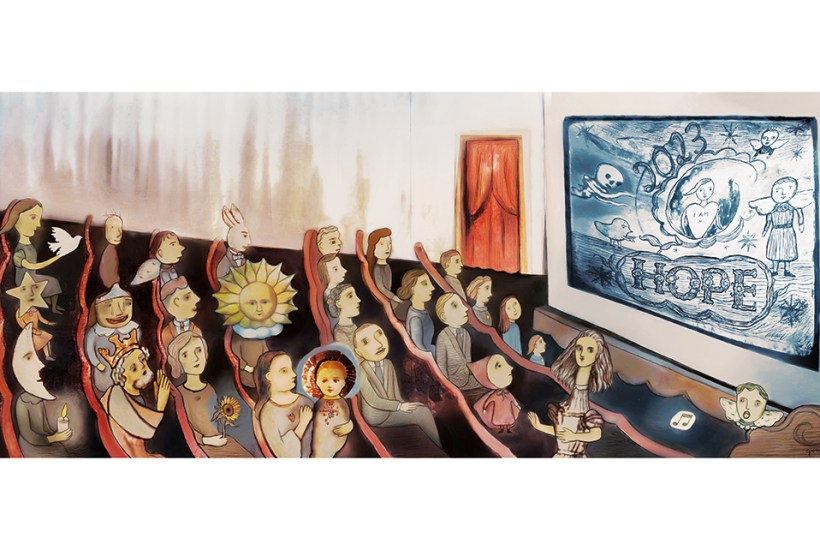
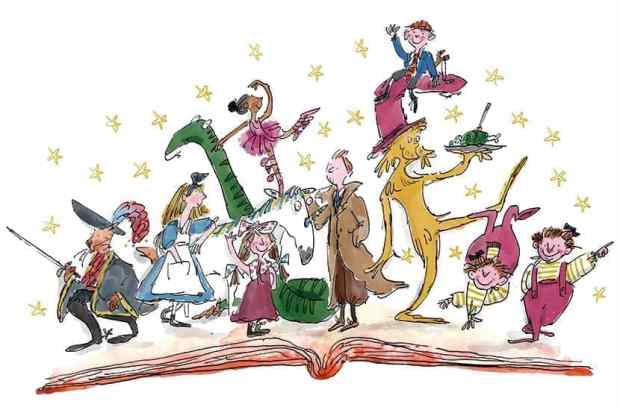
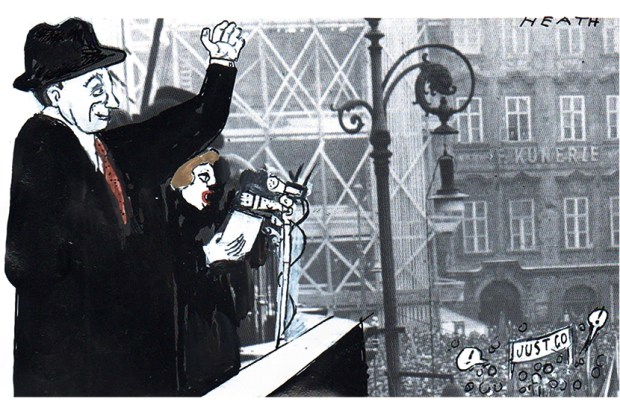
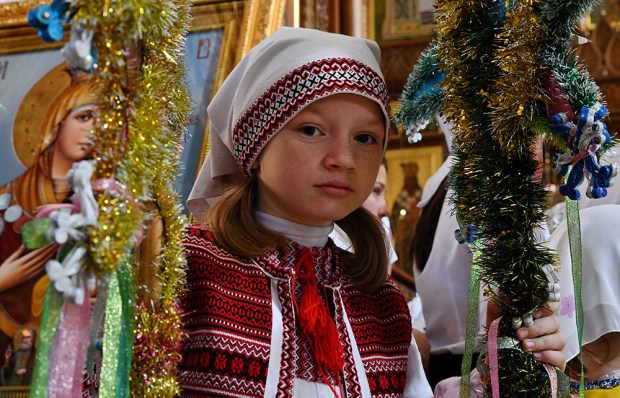
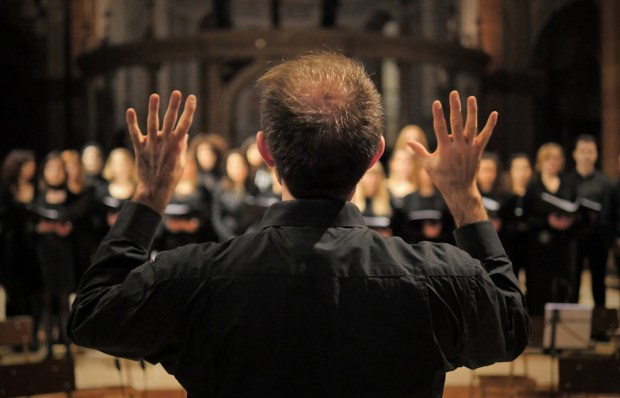
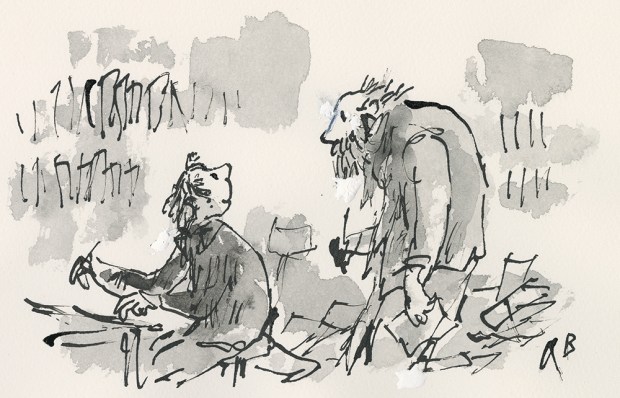
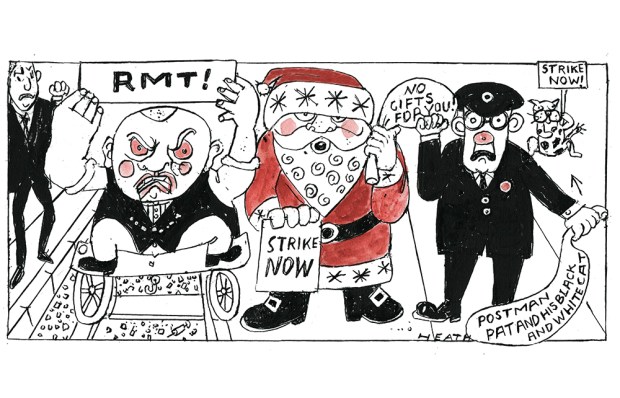






Comments
Don't miss out
Join the conversation with other Spectator Australia readers. Subscribe to leave a comment.
SUBSCRIBEAlready a subscriber? Log in